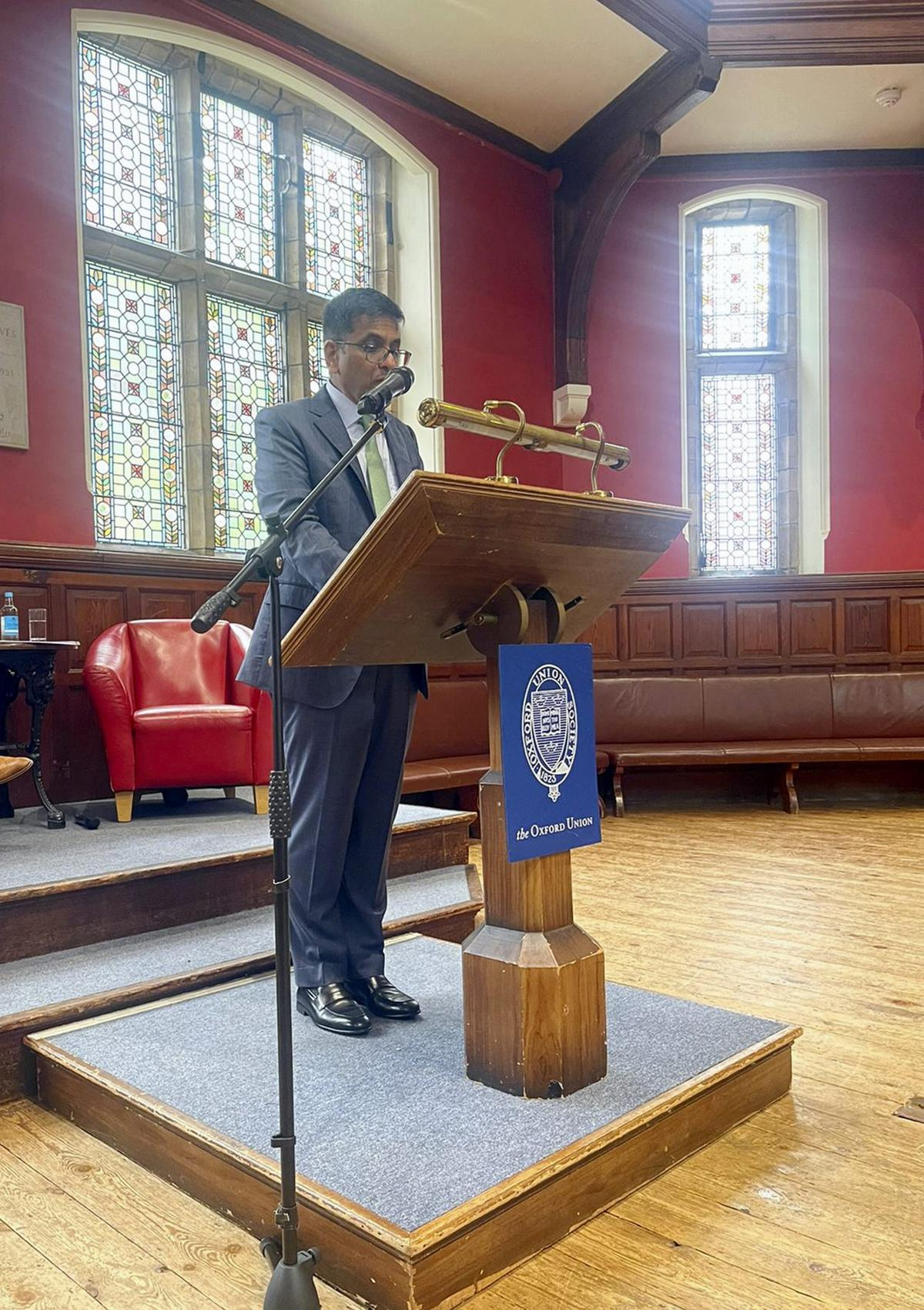news details |
|
|
| Judges reflect sense of continuity of values amid elections: CJI Chandrachud | | |  Agencies Agencies
OXFORD, June 5: While elections lie at the core of India's constitutional democracy, judges reflect a sense of continuity of constitutional values that protect the system, Chief Justice of India DY Chandrachud has said. Addressing the famous Oxford Union Society here on Tuesday on the topic of the humanising role adjudicators can play in society, the senior-most judge of India's apex court highlighted the role of technology in injecting greater transparency into the judicial system.
Acknowledging some of the "unfair" criticism aimed at judges on social media, the Chief Justice asserted that the overall impact of technology is to help the judiciary reach out to a wider section of society.
"Elections lie at the core of constitutional democracy … judges are not elected in India and for a reason; judges reflect a sense of continuity of conditions, a continuity of constitutional values," he said in response to a question on the general elections, the results of which were declared earlier in the day.
"The judiciary has a vital role to play in a democracy, which is that we reflect a sense of tradition and we also reflect a sense of what the future of a good society should be," Chief Justice Chandrachud said.
Asked about political and societal pressures he may have faced while handing down judgments, the Chief Justice stated that he has never faced a "sense of political pressure from the powers that be" in his 24 years as a judge.
"We live lives which are relatively isolated from the political arm of the government … but obviously judges have to be conversant with the impact of their decisions on the polity at large. That's not political pressure but an understanding by the court of the likely impact of a decision," he said.
Chief Justice Chandrachud, who took questions from the student audience members, was asked about the Supreme Court's Special Marriage Act judgment that ruled against legalising same-sex marriage in India last year.
"I'm not here to defend the judgment because, as a judge, I believe once a judgment is delivered, it becomes the property of not just the nation but global humanity. The Special Marriage Act was a law enacted by Parliament … which contemplates a marriage in a heterosexual relationship," he said, going on to share that he was in the minority in that case in a certain specific aspect as he was in favour of recognising civil unions for same-sex couples "until such time as Parliament stepped in".
"Three of my colleagues didn't agree with us because they felt even the recognition of same-sex unions was beyond the purview of the court … What happens in courts in modern democracies is not really to be looked at in terms of the substantive outcomes of the case. The court is involved in a continuous process of dialogue, not only with the litigating parties but a dialogue with civil society," he said.
This was the main motivation behind his decision to livestream important constitutional cases, he added.
"We need to take the process of justice and the administration of law to the homes and the hearts of people," he said.
As an independent, student-led society with a membership primarily drawn from the University of Oxford, the Oxford Union Society, commonly referred to as the Oxford Union, dates back to 1823 as one of the world's leading debating societies created to uphold the principles of free speech.
In his keynote address, Chief Justice Chandrachud spoke at length about the judiciary as an instrument of justice that brings order and certainty and combats the dehumanising effects in society through a humanising approach towards adjudication.
"Technological intervention has humanised the process for the parties and the administrative staff of our courts. It is my duty, however, to place a small caveat: I'm not a proponent of the complete automation of procedures. Since I believe that the absence of the human mind will remove the human element from the process," he noted.
"It is important that we understand and value the pros and cons of technological usage to ensure a humanised mechanism of justice. Artificial Intelligence is replete with unique possibilities for the future. We must also ensure that we impose guardrails to control Artificial Intelligence itself and not shift the process of communication from a judge to a robot," Chief Justice Chandrachud added. |
|
|
|
|
|
|
|
|
|
|
|
|
| |
| |
|
|
|
|
 |
|
|
